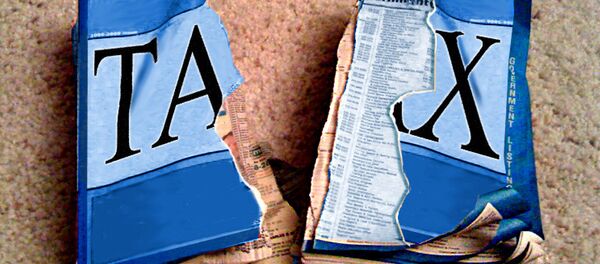More than two years after the LuxLeaks scandal, MEPs have called for reforms to the Code of Conduct Group on business taxation (CoCG), which is designed to combat aggressive tax practices in the EU through legally non-binding agreements.
However, in the aftermath of the LuxLeaks scandal — which exposed how Pepsi, IKEA, AIG, Coach, Deutsche Bank, Abbott Laboratories and nearly 340 other companies which had secured secret deals from Luxembourg that allowed many of them to slash their global tax bills.
Urgent reform of Code of Conduct Group long overdue in fight against tax dumpinghttps://t.co/uuFI8ProEH #EPlenary pic.twitter.com/S2FZRSRP3T
— GUE/NGL in the EP (@GUENGL) 15 March 2017
"Since LuxLeaks, the EU has promised to fight corporate tax dumping. Yet, we are still losing hundreds of billions of euros a year to Disney, McDonalds and others whilst the EU is falling apart," said Fabio De Masi, from the European United Left/Nordic Green Left group.
"The Code of Conduct group has been responsible for combating harmful tax competition for 20 years. But that has been a failure with very little to show for. If we keep giving EU tax havens veto powers, we will never make progress with either establishing a blacklist for tax havens or a sufficiently progressive Common Consolidated Corporate Tax Base for Europe," said De Masi.
Solidarity with whistle-blowers and journalists. #LuxLeaksTrial Free @edperrin @support_antoine @HelpRaph! @GUENGL #LuxLeaks pic.twitter.com/HrNTAPga0n
— FabioDeMasi (@FabioDeMasi) 15 March 2017
"Ireland's Finance Minister claims our country is committed to the highest international standards on tax transparency. But he's also on the record as opposing public country-by-country reporting (CBCR).
"Government and tax industry representatives claim this is about trust — the Irish people have trust in our Revenue agency therefore making CBCR public is unnecessary," said Carthy.
"Well, lots of people don't trust Revenue — the agency that gave illegal sweetheart deals to Apple. Making CBCR public is vital to ensure democratic, public scrutiny of corporate tax," the Irish MEP added.




